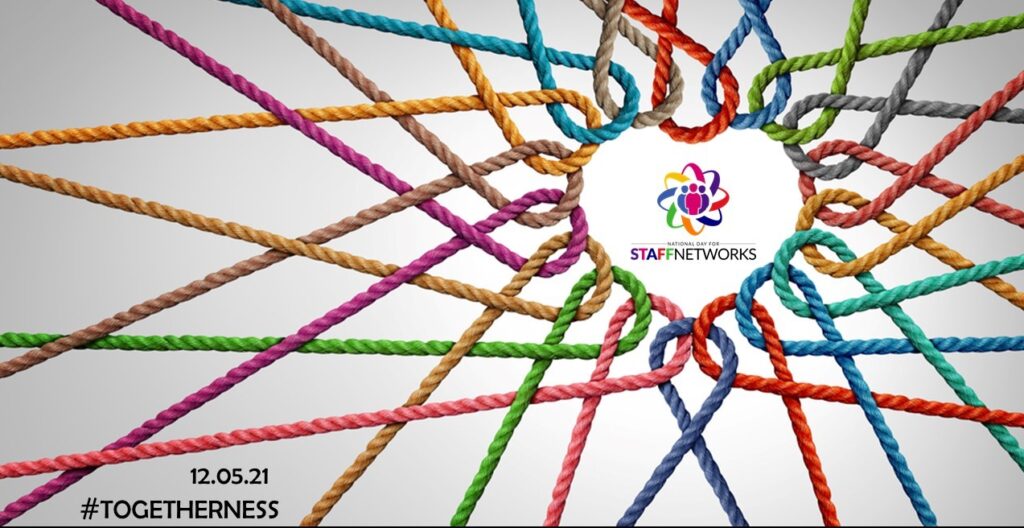
Today is the National Day for Staff Networks. We celebrate the hard work that staff networks do in organisation’s across the world. Today also gives us an opportunity to highlight the hard work that goes behind staff networks, and in particular the countless time and effort of dedicated individuals often taking their personal time to make their organisation’s a better place.
Staff Networks, or Employee Resource Groups as they are sometimes called, are employee-led groups within an organisation. These are often based upon under-represented groups or protected characteristics, for example on race, LGBT+, Gender, Religion or Parental groups to name but a few.
Since joining the office workforce, I have found staff networks an invaluable and critical function within the business organisation. So much so I chaired the departmental race and faith network for two years, and am currently the Secretariat lead for the cross-government race forum!
The reason staff networks are so valuable is that they are a force for genuine positive support and change within an organisation. In a world where we often bemoan hierarchical structures with little opportunity to have our voice really heard, staff networks demonstrate a tried-and-tested way to really bring the voice of different staff together and give them to the organisation as a critical-friend.
With more emphasis and action towards Diversity and Inclusion, staff networks are often key sounding boards for HR initiatives that effect certain groups. For example, companies have spoken to their disability network to test products with a disability-lens attached. In other words, staff within the company can see how well the product would work for disabled individuals, and help ensure that accessibility features are in place. This is great for the organisation as it ensures a better-made product, whilst it also acknowledges and values the skills and experience that disabled staff have within the organisation too.
But at its best staff networks can go even further. In my time working as a network leader, I worked very closely with my HR to support, test and challenge new proposals, including on introducing new talent schemes, performance management measures or outreach initiatives on recruitment. In a space where HR budgets are tight, I could coordinate support via our volunteers to give valuable time and resource. Working in the Civil Service meant we had a wide-range of expertise including analysts, policy-professionals and event managers, meaning we could tap into a rich and vast set of experiences that would otherwise be left hidden away in silos within the organisation.
In my time, we gave critical feedback all the way up to the head of our organisation on the situation around race, building a movement to highlight and address systemic issues. Using data and analysis, we presented across Senior Management Teams, eventually leading us all the way up to the Executive Committee. I was even given the space to present a paper with a set of recommendations (all of which were agreed upon). It’s certainly not an experience I would have gotten without the recognition and creation of staff networks!
So today is a day to rejoice. Bringing people together in support of an organisation by making people’s voices heard is always an important thing to cherish. I do recognise that staff networks are often under-resourced or sub-optimally structured, however we must remember that these are essentially a free resource for the business ran by volunteers, and the amount they can bring to the table is far more than any set of external consultants trying to do the same thing!
So if you’re a member of an organisation with staff networks within them, I would really encourage you to get involved. A lot of blood, sweat and tears goes into maintaining them, and there is always a need for more volunteers. It’s a fantastic way of widening your own personal network, understanding more about the organisation’s objectives and give yourself an opportunity to pick up wider leadership skills. If your organisation does not have a staff network, why not set one up?
For further information about the National Day for Staff Networks check out https://www.nationaldayforstaffnetworks.co.uk/








